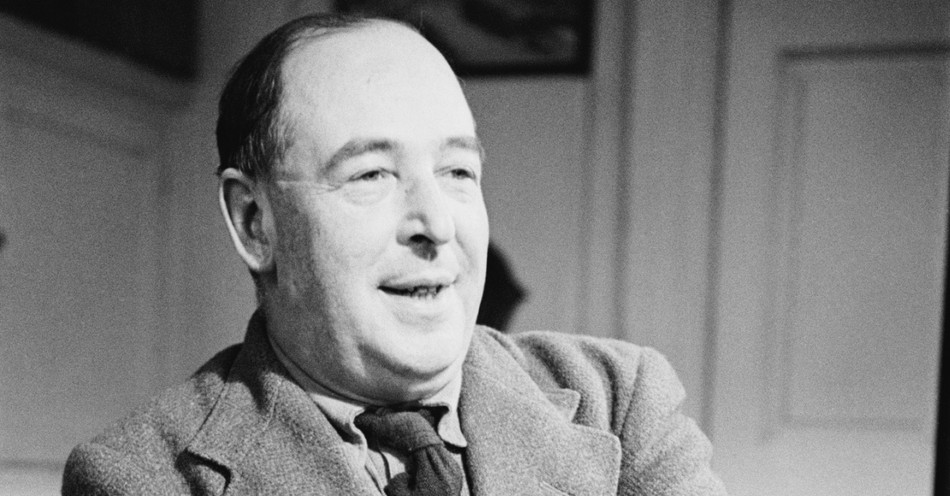SPECIAL OFFER: Enroll in this free online course on C.S. Lewis today!
Whenever I struggle to understand C.S. Lewis’s nonfiction work, I find it helpful to go to Narnia.
For example, so many of the concepts Lewis introduced in Mere Christianity are found in The Lion, the Witch and the Wardrobe. Throughout each of the Narnia books, Aslan, the Pevensie children, and other characters embody many of the ideas he explored in his nonfiction.
Another example is The Abolition of Man, a book critically important for our cultural moment. In the book’s opening essay, “Men without Chests,” Lewis thoroughly critiques modern education which, Lewis says, fills students’ heads with knowledge and their bellies with passion, but does nothing to cultivate the chest.
This idea from Lewis is based on something Aristotle taught, that the head is the seat of human reason and the belly is the seat of passion. Good citizens, Aristotle believed, are those whose heads govern their bellies. When someone is ruled by their passions, they are unstable.
Aristotle thought that humans could govern their bellies through the formation of good habits. There’s certainly a lot of truth to that. But anyone who has ever been in a real conflict between head and gut knows that, typically, the gut wins. Even more, our reason becomes merely instrumental to justify whatever it is we want.
My friend Michael Miller, a senior fellow at the Acton Institute, once described the belly as an 800-pound gorilla constantly demanding, “Feed me, feed me, I want. I want, feed me, feed me.” The head, on the other hand, is more like an 80-pound professor with a bowtie. Who’s going to win the conflict between a massive gorilla and a tiny professor? The gorilla… every time.
This is what C.S. Lewis was critiquing in his essay “Men Without Chests.” A person will only function well if they are bolstered by a strong “chest,” or virtue. Only a well-formed moral will, which cares for virtuous things, can overrule and ultimately govern the belly.
For a story version of this opening essay of The Abolition of Man, see The Voyage of the Dawn Treader. This book has one of the best opening lines: “There was a boy called Eustace Clarence Scrubb, and he almost deserved it.” Eustace is the boy without a chest, as readers soon discover. He’s a spoiled brat; as Lewis goes on to describe, he attended schools that filled his head with knowledge and his belly with passion, but did nothing to cultivate his chest.
A thematic undercurrent in The Voyage of the Dawn Treader is how Eustace developed a chest. Spoiler alert: it had a lot to do with his relationship with Reepicheep, one of Narnia’s smallest characters. The mouse, a perennial favorite character in all of Narnia, had much moral courage. He had, to borrow Lewis’ phrase, a chest.
“Men Without Chests” is just one reason that The Abolition of Man is such an important book for understanding our current cultural moment. Lewis’s analysis of culture in this book is more relevant now than ever. It is a must-read for any and every Christian.
Recently, Dr. Michael Ward, one of the foremost C.S. Lewis scholars on the planet, a researcher from the University of Oxford, and a visiting professor at Houston Baptist University, has written a companion guide to the Abolition of Man. The guide is called After Humanity: A Guide to C.S. Lewis’s The Abolition of Man.
In this book, Dr. Ward takes readers on a chapter by chapter, essay by essay journey through the most important ideas in The Abolition of Man. Because the analysis in this book is so critical to understanding our cultural moment, the Colson Center will send a copy of both The Abolition of Man and After Humanity: A Guide to the Abolition of Man as our thank you for a gift of any amount to the Colson Center this month.
In fact, anyone who gives this month will also be able to join an exclusive set of video introductions from Dr. Ward and a live webinar to discuss the key concepts in the book. This special opportunity to study one of Lewis’s most important books, guided by one of the world’s top Lewis scholars, is only for friends of the Colson Center.
Visit www.breakpoint.org/october to give a gift to the Colson Center and get your copies, along with access to the live webinar and prerecorded introductory videos.
Image credit: ©Getty Images / John Chillingworth Stringer
John Stonestreet is President of the Colson Center for Christian Worldview, and radio host of BreakPoint, a daily national radio program providing thought-provoking commentaries on current events and life issues from a biblical worldview. John holds degrees from Trinity Evangelical Divinity School (IL) and Bryan College (TN), and is the co-author of Making Sense of Your World: A Biblical Worldview.
The views expressed in this commentary do not necessarily reflect those of CrosswalkHeadlines.
BreakPoint is a program of the Colson Center for Christian Worldview. BreakPoint commentaries offer incisive content people can't find anywhere else; content that cuts through the fog of relativism and the news cycle with truth and compassion. Founded by Chuck Colson (1931 – 2012) in 1991 as a daily radio broadcast, BreakPoint provides a Christian perspective on today's news and trends. Today, you can get it in written and a variety of audio formats: on the web, the radio, or your favorite podcast app on the go.




